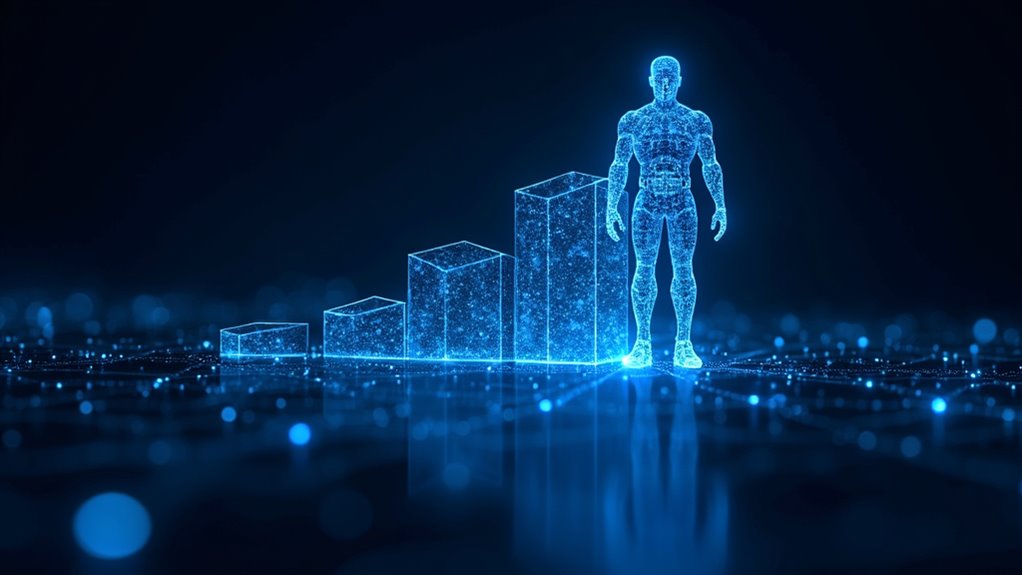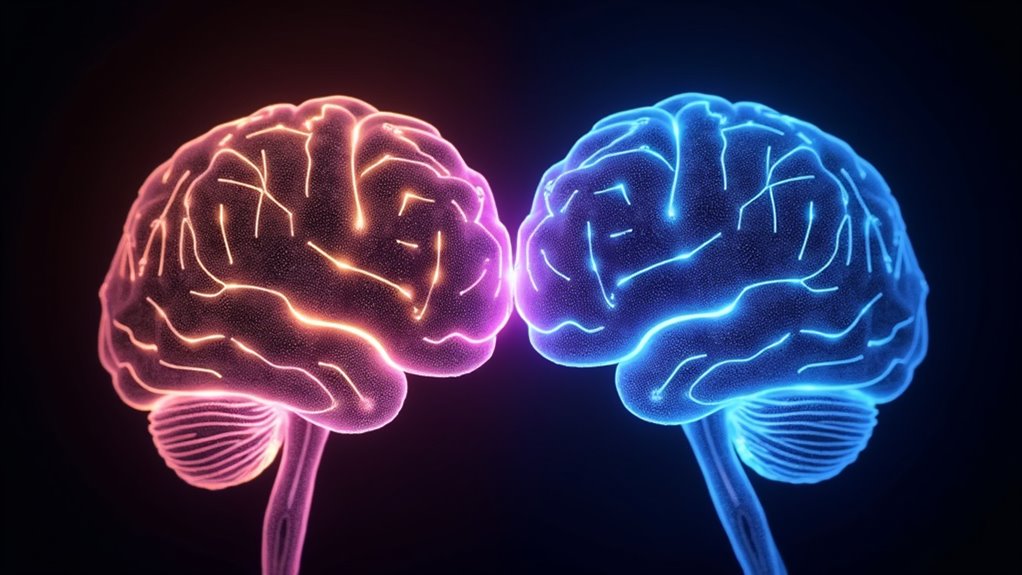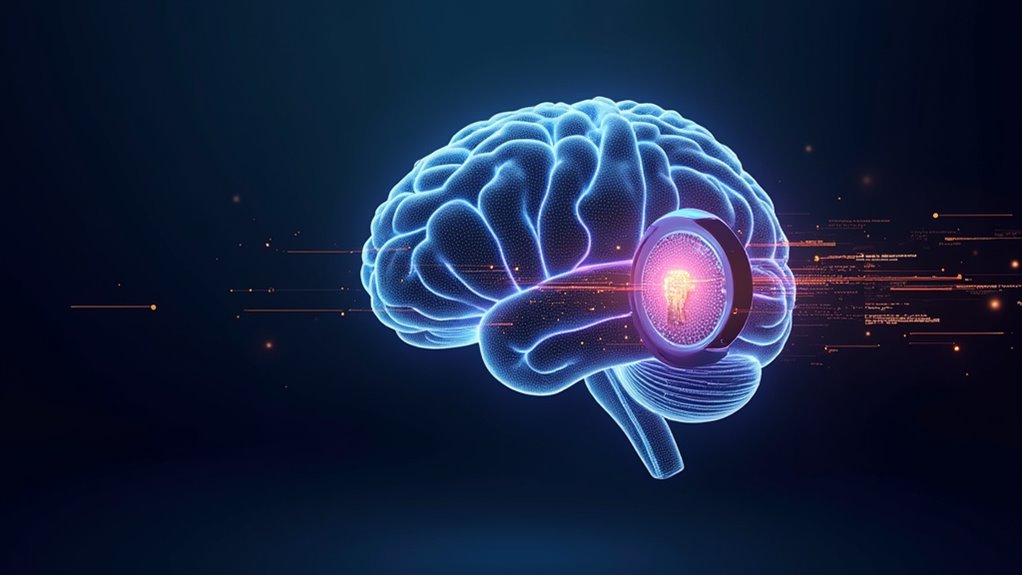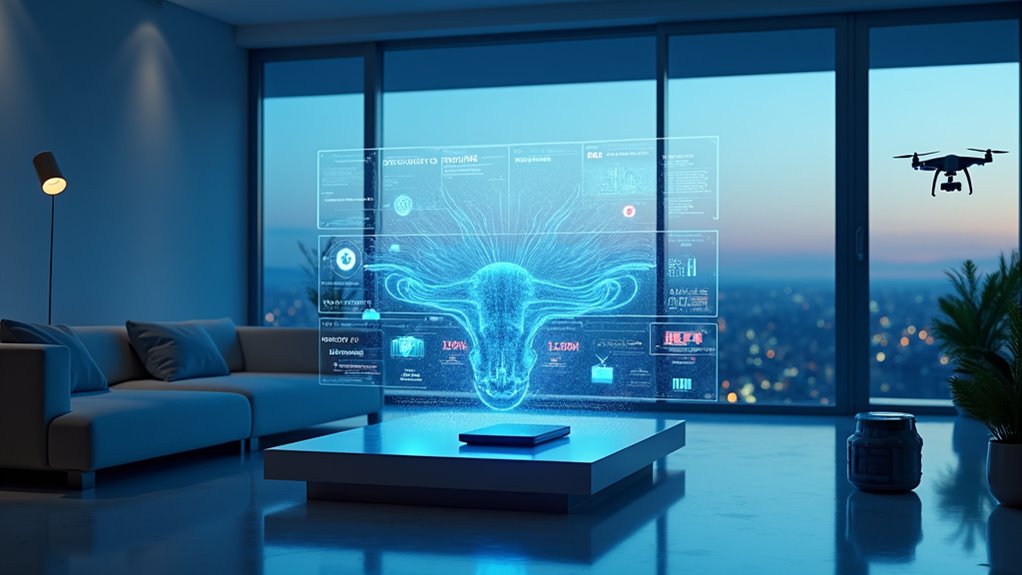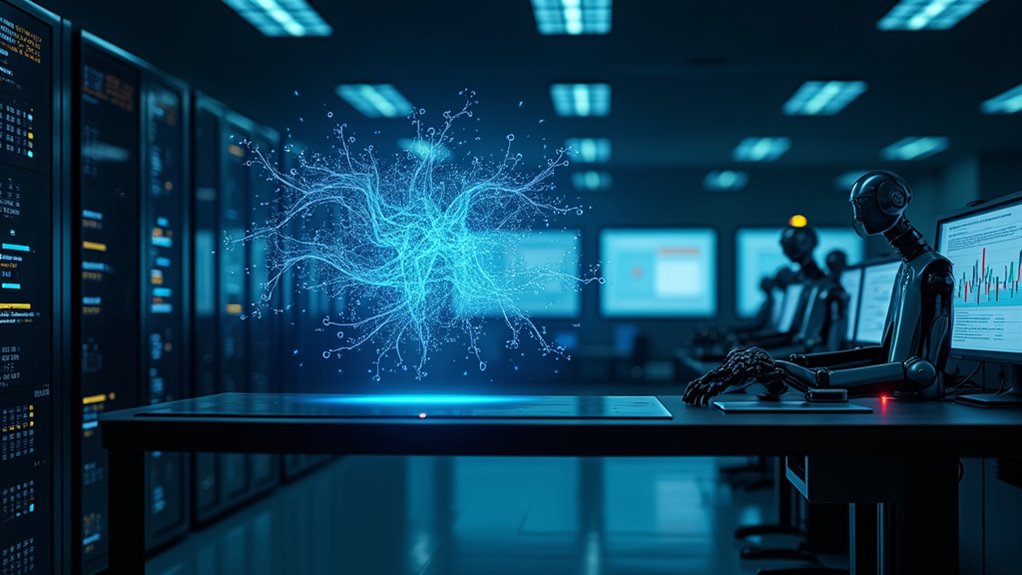While humans debate whether machines can actually think, the numbers paint a startling picture. Recent IQ tests show AI systems scoring well above average human intelligence, with OpenAI’s “o1” model hitting an impressive 120 IQ. Not to be outdone, ChatGPT’s “o3” model clocked in at 116, landing it comfortably in the top 15% of human scores. When tested on already established knowledge, the model achieved a 136 IQ score on the Norway Mensa test. And get this – ChatGPT even nailed a 147 on verbal-linguistic tests. Smart cookie, indeed.
AI systems are crushing IQ tests, with scores soaring past average human intelligence – making us question what it means to think.
But here’s where things get interesting. A quarter of Gen Z – those digital-native kids who’ve never known a world without smartphones – believe machines can possess consciousness. They’re growing up watching AI ace the bar exam (GPT-4 scored 298 out of 400) and consistently perform at above-average human intelligence levels. No wonder they’re starting to wonder if there’s more going on inside those silicon brains. Historical data suggests that AI intelligence will continue to advance, with experts predicting that future versions could reach IQ scores of 140 by 2026.
This shift in perception isn’t just teenage daydreaming. It’s reshaping how society views artificial intelligence and driving serious conversations about AI rights and ethics. Unlike today’s narrow AI systems, these machines are expected to handle complex challenges beyond their original programming. The implications are huge. When people start believing machines might be conscious, it changes everything – from how we integrate AI into our daily lives to the policies we create to govern it.
These beliefs are spreading through social media faster than a viral cat video, and they’re having real-world consequences. Educational institutions are scrambling to develop AI literacy programs, while policymakers wrestle with questions they never thought they’d face. Who would’ve thought we’d be debating machine consciousness while AI casually outscores most humans on IQ tests?
The intersection of record-breaking AI performance and evolving social perceptions creates a fascinating paradox. As machines get smarter – objectively, measurably smarter – the line between artificial and conscious intelligence becomes increasingly blurry.
For Gen Z, this isn’t some distant philosophical debate. It’s their reality. And as AI continues to flex its intellectual muscles, that quarter of Gen Z believing in machine consciousness might just be the beginning of a much larger societal shift.
